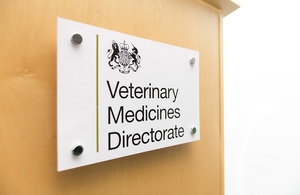- UK TRA proposes anti-dumping and countervailing measures on Continuous Glass Fibre from China be kept for a further five years
- It has, however, proposed that duties on a specific form, mats made of glass fibre, be revoked.
- Glass fibres are used in the creation of wind turbine blades as well as in construction and automotive applications including manufacture of electric vehicles.
In its initial findings, the UK’s Trade Remedies Authority (TRA) has today (20 April 2022) proposed that existing measures on imports of Continuous Glass Fibre from China be maintained.
The TRA’s provisional findings, contained in the Statements of Essential Facts, would mean that this UK industry, predominantly based in Wigan, continues to be protected from injury caused by dumped and subsidised imports of products from China for another five years. A 30 day period for comments is now open.
Following a transition review, the TRA has recommended that countervailing and anti-dumping measures be kept on Continuous Glass Fibre products from China. Continuous Glass Fibres are used in the make-up of wind turbine blades, which are integral to the UK Government’s strategy to boost the country’s energy security. They are also used in such industries as transportation (automotive, marine, aerospace), building and construction, electric/electronics, as well as wider manufacturing of various consumer goods.
The TRA found that imported products from China accounted for 8.44% of total UK imports in 2020, making China the fifth largest source of imports of continuous filament glass fibre products.
The TRA has recommended that the measures on continuous filament glass fibre products be maintained at their current levels until 31 January 2026 – that is five years subsequent to the date when the measure would have expired (31 January 2021) had no transition review been initiated.
However, the TRA determined that mats made of glass fibre should be excluded from the measures. Mats are not produced in the UK, and the TRA did not receive any submissions in relation to keeping mats within the scope of the measure.
While mats of glass fibre produced in China are bought by multiple UK importers, the TRA found no evidence of UK production and there is no suggestion that mats imported from China would compete against domestically produced other forms of Continuous Glass Fibre.
Oliver Griffiths, TRA’s Chief Executive, said: “Glass fibre is a vital component in UK advanced manufacturing, used in wind turbine blades and electric vehicles. The provisional findings we are announcing today would protect UK glass fibre producers from unfair international competition.”
Following today’s publication, there will be a 30-day period in which interested parties can comment on the report. Comments can be submitted by Interested Parties to the TRA via the Trade Remedies Service website.
The TRA will then consider and produce a Final Recommendation, which will be sent to the Secretary of State for International Trade who will make the final decision on whether to uphold the TRA’s recommendation.
Notes to editors:
- The Trade Remedies Authority (TRA) is the independent UK body, established in June 2021, as the first non-departmental public body of the Department for International Trade, that investigates whether trade remedy measures are needed to counter unfair import practices and unforeseen surges of imports.
- Read more about the TRA’s mission in its Business Plan.
- Anti-dumping duties allow a country or union to take action against goods sold at less than their normal value, which is defined as the price for ‘like goods’ sold in the exporter’s home market.
- Trade remedy investigations were carried out by the EU Commission on the UK’s behalf until the UK left the EU. Forty-four EU trade remedy measures of interest to UK producers were carried across into UK law when the UK left the EU and the TRA is currently reviewing each one to assess whether it is suitable for UK needs.
- Countervailing measures address imports which have benefited from a government subsidy that’s countervailable in their country of origin. Trade remedies can only counter certain types of subsidies and these are known as countervailable subsidies. You can find out more in our online guidance on subsidy investigations.


